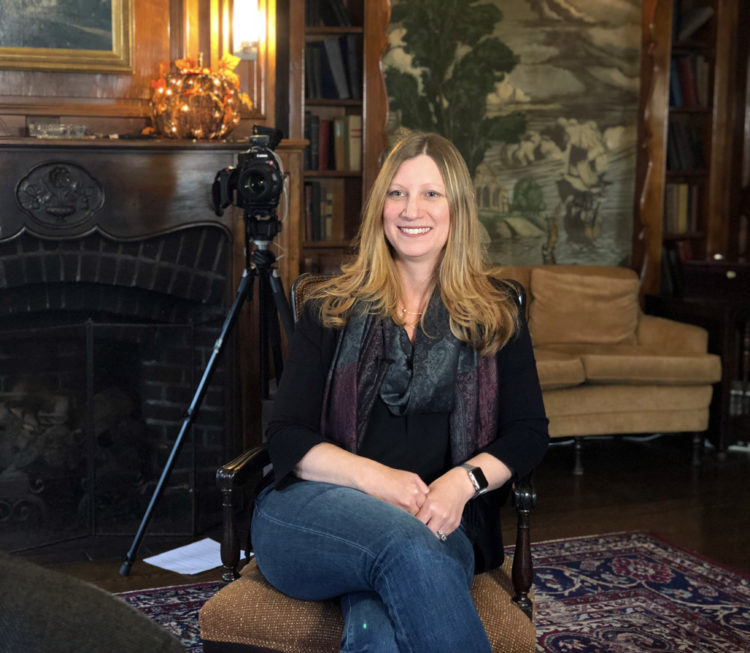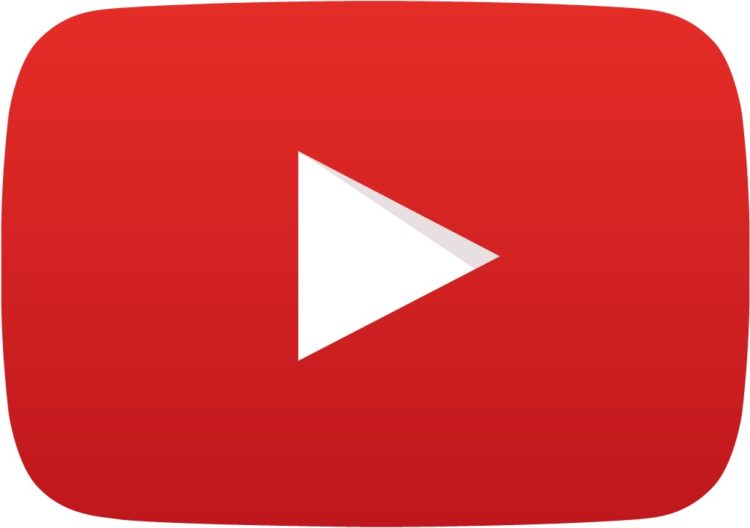

Melanie Cutlan leads the Blockchain Practice for Accenture Operations, which helps clients transform their operations by harnessing talent, data, and intelligence to deliver the right information where and when it is needed.
READ FULL TRANSCRIPTSo, Melanie, I’m so excited that the stars aligned and that you were able to sit down with us today, in Chicago. We’ve had a lot of requests for people to come on and talk about this topic, so I’m really excited to hear your experience and your viewpoints on blockchain. But before we dive in, could you share a little bit more about your back story and how you came to Accenture, and what your role is there today?
Sure. I’m Melanie Cutlan and I’m out of our Denver office, but happy to be here in Chicago ’cause I actually have a team here in Chicago that focuses on blockchain every day. I am a global blockchain operations lead, so I get a chance to do not only R&D, but applied development of how blockchain will impact the scope of our business and help them pivot to the new.
Blockchain is clearly a buzz word. You see it everywhere. I think there’s a lot of perceptions of what it is and what it isn’t. Some of those are accurate, maybe some of them are not. As someone who has her hands dirty in blockchain and has some experience there, could you just define blockchain through your eyes for our audience?
Sure. At Accenture, we are focused on enterprise-level blockchains, which is very different than the cryptocurrencies and the public solutions we see in the marketplace. Those don’t typically have governance around them. And when something goes wrong, there’s no one to call. What we focus on is really the enterprise solutions that have the ability to share data between different organizations in ways that are different than today. So for example, today, if I have a piece of information, I will message it to you, you will put it in your system, you’ll message it back to me somewhere later in the process. And easily we get out of sync because we can change our data in our core systems and they don’t match. So then you call me, you say, “What was it? How was it different? What does it look like?” And we get confused and we have reconciliation departments all over the place. No matter what your industry is, we find that is everywhere. What blockchain brings is the ability to share data in a shared data construct that allows you to trust its origination, where it’s at, and how it goes through the process. It’s append-only, so you can’t change existing records.
And so by sharing data in this way, we can get to, “I see what you see.” So I’m putting information on the chain, then you’re updating that information on the chain and we’re moving a transaction through a life cycle. And at any point in time, if we wanna know what’s the accurate source of truth, we can look at that chain and say, “I see what you see,” and we’re all reconciled automatically.
So that’s super helpful. And then how did you personally become involved with it, or how did you first experience blockchain, and what kind of excited you about taking on this role at Accenture?
I was running a R&D lab within Accenture Operations where we were looking at new emerging technologies and how they were gonna impact our own business, and then things that we could then bring to our clients. And as blockchain became more and more familiar… And this was 2015. As it became more and more familiar to us, we quickly realized that it was gonna resolve exceptions. And if you think of business operations, there are so many exceptions in that world and there’s applicability far beyond the reaches of financial services, which got us really excited because there wasn’t a lot of noise at the time in the market around things beyond financial services, of how we could start to share data across our value chain, and create new value and unlock trapped value beyond the four walls of your silo of your business today.
So if you could expand upon that just a little bit in terms of how blockchain can really impact business operations, can you share some examples there?
Sure. Take an example, I’m gonna order something. I’m gonna create a purchase order out of my system, it becomes a sales order in your system. I put a record and a copy in my system, you put a record in yours, and there’s a myriad of things that can happen in the middle to where they become different, right? So at the end of the process, then you actually ship the goods and you send me an invoice at the end of the day, and they don’t match. So we have this challenge of what’s different. On my record said it should be $100, yours said it should be 110, or yours said you should charge me shipping and I don’t need to pay shipping per our agreement in the beginning. So today, we have a number of electronic tools that allow us to share data between some of our top providers, but as we think about the many-to-many problem that starts to happen as you expand your supply chain, expand your reach, and realize you’re part of a value chain as well if somebody else is buying from you as well, you start to really get a complicated ecosystem.
So we see blockchain and its network capability really powerful in its way to standardize data, to start sharing information and to get to, “I see that same record of the transaction in the history of the transaction as you do,” so we don’t get to discrepancies at any point in time as we actually can see and prove and trust. And because that data is append-only, we can then trust that that is the same information and nobody has changed it in the middle.
Well, that’s a great example. And as an agency owner where we have a lot of sales, a lot of transactions, a big supply chain, a lot of vendors, that’s certainly something that I could see making everyone’s life a lot easier and more efficient. So just building on that, maybe is there also a particular use case that you could also talk about, where you’ve seen blockchain really help a business?
I’ve seen a lot of exploration across the supply chain, so that’s really a predominant example in the industry right now. So we see three kind of use cases, supply chain, digital identity and financial services infrastructure, taking the mass movement across the industry, where there’s really innovation happening, people coming up with interesting use cases. So supply chain can mean something different depending on who you are in the supply chain. So as a logistics provider, you care about where your boats are in the world, right? Moving goods across the ocean. As a buyer, you wanna know where your things are in the process and when they’re gonna get to you. As a bank, you wanna know what does that look like and how are you financing the transactions that may be in transit for your customers. So everyone is looking at it in a siloed way, even today, as they explore blockchain. What excites me is about the ability to look at the end-to-end as a whole in supply chain and think through how those start to fit together and solve a problem across entire industries.
What are one of the ways that you see blockchain really impacting digital marketing today?
Digital marketing has a very similar process where you’re buying media, you’re displaying that media to some consumer at some point in time. And at the end of the period, you are then reconciling how much was consumed, who saw it and what was the worth of that. And that to me is just a supply chain problem. Where is it? And you have today, silos of information between the different organizations that are providing space, providing information of what’s been shown to who and all of the fraud that is in the middle of that process. If you could start to share data in a shared data construct across all of those parties, you start to bring all kinds of new opportunities together to see the end-to-end and make sure that you’re buying things that are actually driven on outputs, versus just buying things and hoping it works through the process, and having that feedback loop. So we see opportunities are endless in digital marketing as we talked about with the identity and bringing the identity together as well. But one of the really exciting ones is starting to see how these exchanges are thinking about it, like a supply chain, and providing that end-to-end transparency.
Well, I love that answer because I think, as we talked earlier, blockchain being a buzz where there’s some misperceptions around it, I know a lot of the value sometimes tends to be placed in the B2B world, how it will impact businesses, how it will help impact global-sized businesses with all this type of moving parts and information. Beyond the identity that you just talked about, do you see some other benefits on the consumer side, or perhaps through the marketing side as a consumer, where blockchain could be valued on the B2C side?
Sure. We’ve seen even loyalty programs become a great use case for blockchain. As you create loyalty to your brand and you have some kind of token or value or points awarded to that and then sharing that with other partners, that sharing of data is very difficult today. I made a hotel arrangement using points from my, maybe, credit card vendor, so I’m now two stages away from where I earn the points and then I cancel that, but want the points back on the other side. That experience from a user perspective is so difficult because there’s no transparency. It loses when it leaves one data silo and goes to the next data silo. We’re seeing some examples in that industry where loyalty programs are starting to have that traceability and you can understand where is data as it leaves your organization and who are you sharing it with and how you can have a better experience. So now you can offer products and services and new business models to your customers, who’ve never had the ability or control to be able to offer before.
So the exciting thing is not just the consumers, is what are those services and conveniences that consumers can get because people can do business in new ways that are focused on the user-centric design of what should it be and get technology out of the way. To a consumer, you should not say, “I’m using a blockchain solution,” you should say, “I have a great experience and my data flows as I would expect it to flow, ’cause businesses should talk to businesses [chuckle] and I get the right solutions.” And even offer entirely new things that have value-added services that you can’t offer today because of those technology constraints that get in the way today.
So we’ve talked a lot about how rapidly blockchain has moved the needle, how fast things are moving. With that is, obviously, there’s a lot of organizations that are also playing in this space. As we talked a little bit about, Accenture has obviously been at the forefront of that, but it’s the marketplace for harnessing technology through blockchain and advising consulting businesses and consumers. What some of the things that position Accenture uniquely in that market?
Well, there’s a number of things that position us uniquely. Number one is that we are technology independent and so we can bring the right solution to you based on what are your needs, not just based on a set of prescribed products or services. And number two is we’re really embedded into the fabric of the the market. We have a key position in Hyperledger. We’re at the leading point of many of these foundations that are leading the way, so driving their roadmaps and helping to partner with some of these companies. We have a minority investment in digital assets and other companies, like Ripple, that are starting to see that enterprise scale pick up at speed. And so that’s an exciting spot where we’re not just talking about the industry, but we’re hearing. I spend time with our key partners at blockchain offices on a regular basis to make sure that we know what’s coming and what’s around the corner, and we can help advise our clients.
What I think is interesting is when we walk into clients’ organizations, they’re often reading the press and that’s what they’re educated by, and we have to re-teach them what enterprises are actually capable of, of what other people are doing in the industry, in the aggregate, and start to go, “Wow, people are ahead of us.” So the double-click of some of these stories are really fascinating. So having a partner that can help you navigate what’s hype, what’s real and go through this process is key to being successful in having a good strategy for you going forward. And the third reason is that we have the breadth and scale to run and operate these networks. A lot of companies are going together with other companies to create consortiums, and stuff and then quickly realizing they have a new business that needs to be operated that is not their day job and their top priority. So our ability to scale and operate these networks fits nicely into some of the services we already offer today.
So it’s great to hear all those differentiations that really well position Accenture. You talked about something in the middle there that I thought was really interesting, and that is about how some people come to know blockchain. They read a lot about it, they hear about it. I know we started our conversation with how it’s become such a buzz word. What’s one piece of advice that you might have for an executive or an entrepreneur of how they could leverage Blockchain’s technology so that they don’t miss out on some of the innovation opportunities?
Well, I think it’s that, use that childhood curiosity that we all have, and take the time and do your own research at whatever pace makes sense to you. Read what is available and out there for you, and do that continuous learning search. Of course, we’ve got lots of information at accenture.com/blockchain. Following people on LinkedIn and Twitter is a great way just to continue to get new sources of information, but you need to take that time to dive into what’s in the market. The white papers that are out there are really interesting about giving an insight to where some of these technology companies are coming at it. And if it’s not your desire to be a curious learner, just find a partner that can help you do that. We do a number of sessions with people just to help their board understand where is this, what’s real, what’s the hype, through the stories. So it’s really depending on your strategy. Are you a personal learner? I would say dig in and get smart, and don’t leave it alone ’cause it changes weekly, daily, monthly, quarterly, and keeping a refreshed pulse on how fast the market is changing.
I ask people to look at their strategy and say, “What are those triggers that are gonna happen that are gonna cause you to jump in?” So if I’ve already thought about it, I’m like, “Oh, I can wait.” But I know when these types of things start happening, it’s my turn to get in and get relevant and start making action towards it, that is really important. So if you’ve already thought through the thought exercise of, “These are available in their products some day, and they’re off the shelf and anybody can grab ’em.” Well, what do I wanna do before that? Do I wanna set the rules or do I wanna wait for somebody else in the industry to set the rules and I will follow them? And where is it important for me to put my inertia and energy around? So that as rules start coming out, you go, “Oops, I wanted to be a rule setter. I better jump in,” or, “I’m okay to wait and see how this goes and it’s not critical to my business, and I will follow along as accordingly.”
Well, I knew this conversation would be very interesting and very informative. And you just talked about learning and I have all these thoughts and ideas that are already spiraling around in my own head as a marketer, as a business owner, as an entrepreneur. And we’ve talked so much about how rapidly things are changing in different perspectives. So as you think about the future, which is crazy ’cause you’ve already talked about so many incredible opportunities and possibilities with blockchain, but as you think about the future, what really excites you with blockchain and what kind of role do you see Accenture playing in the future of blockchain?
There are so many things to answer that question ’cause literally everywhere I look, I get excited [chuckle] about possibilities and opportunities. The interesting thing though is that the set of use cases are starting to stabilize. We’re not seeing net new use cases coming up every day. There are ones that have been explored and there is thought leadership around them that we’ve explored where blockchain is best suited across different industries. And so supply chain definitely being the biggest one that I am excited to see come together end-to-end, where I can purchase something and all the way to the end of the purchase, I know where it’s been, what it’s done, how it’s been financed and how it came together, especially if there’s ever a return problem. Understanding entire end-to-end supply chain, personally, I just think is exciting ’cause it changes the way an entire middle and back office needs to be organized.
As if you think about, “I have now control of this data and how I share it with what partners.” I may not need these silo teams that I have today that fill out paperwork and push paperwork through approval processes and things. And a paper is just a way in which to contain information to share with different parties. As we get rid of that, we can finally get rid of some of these analog processes that exist today. So that is the most exciting to me, but I think there’s so many right across the world that will transform this. And how Accenture intends to play in this, it is, continues to be a driving force. We have a significant amount of leadership around blockchain, we have a presence in the market and we’re in some of these critical discussions that are happening with leadership as they’re changing the industry. So the way money gets moved around the world, the way our goods are moved around the world, will all transform at the end of the day, and it should just be the fabric of how we expect business to be done.
We look at blockchain as where the internet was in the mid 1990s. So we know what’s coming and we can imagine, but we still think there are more business opportunities and more when you get to the other side, is all these great new opportunities to create new businesses on top of that information.
Well, as my gray hair might show our audience, I started my career in the mid 90s and I remember getting my first computer, it was my work computer, and the internet was… Nobody quite knew what it was yet. And to see now, 25 almost years later, where it’s gone, I think that’s one of the other things that personally for me, again, same thing, there’s so many endless possibilities. And it’d be really interesting to see how this technology can change entire industries, change entire business processes, both through the consumer and the business line. So, again, I knew this would be a great conversation. Time flies. I’m so glad you could join us in the BrandLab today to share your own experience and expertise in blockchain, to talk about some of the really innovative things that Accenture is doing and will continue to do in the future in blockchain. So I’m just really grateful for your time today, Melanie.
Thank you very much. And it was an honor to be here.
Tags: B2B, Technology, Customer Experience, Technology
Enjoyed this episode? View all of our episodes now.


